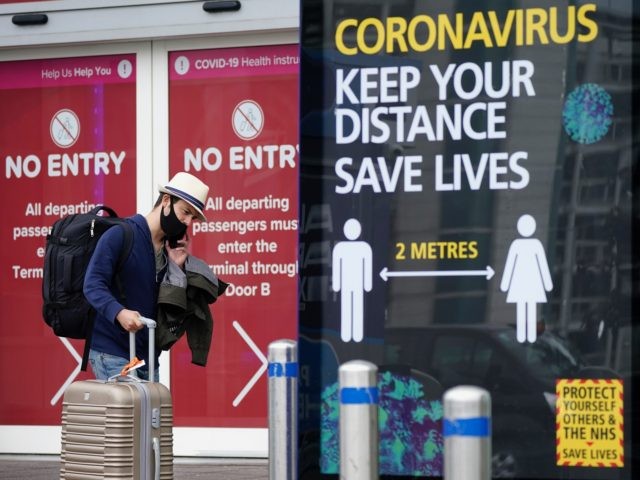British government-sponsored vaccine passports will be issued to thousands of Britons after the receive the coronavirus inoculations in a ‘trial’ run of the programme this month.
The health passport — which will come in the form of a smartphone application — has been developed by the biometric firm iProov in partnership with the cybersecurity company Mvine.
The trial is expected to be completed by March and will be overseen by two directors of public health in a local authority, yet to be announced. The stated goal of the project is to see how health passports can function as a means of tracking how many people have received the first or second dose of the vaccine.
Frank Joshi, the director and founder of Mvine told the Daily Telegraph on Tuesday: “The idea is that we are there ready and waiting in the event that we find ourselves interested in a situation where we need to prove something about ourselves.”
The chief executive of iProov, Andrew Bud claimed that it was “very important” that vaccination programmes should be tied with Britain’s socialised healthcare system, the National Health Service (NHS).
The concept of coronavirus health passports was first floated by Health Secretary Matt Hancock in April, who said at the time: “We are looking at an immunity certificate. People who have had the disease have got the antibodies and then have immunity can show that and therefore get back as much as possible to normal life.”
The government has since expressed mixed messages on whether it would roll out vaccine passports, with Cabinet Minister Michael Dove proclaiming in December that they were “not the plan”.
The recently installed vaccine minister Nadhim Zahawi, predicted just days prior that British businesses would require immunity passports for their customers.
On Tuesday, Mr Zahawi denied that the government was planning to introduce vaccine passports, saying: “We have no plans to introduce vaccine passports.”
Bookmark this tweet. ⌚ https://t.co/DQfU6zQ4IR
— Calvin Robinson (@calvinrobinson) January 12, 2021
A Department of Health and Social Care backed up this claim, saying there are “no plans” to introduce vaccine passports.
“At this stage of the vaccination programme, it is not clear whether vaccines will prevent transmission,” the spokesman said.
“As large numbers of people from at risk groups are vaccinated, we will be able to gather the evidence to prove the impact on infection rates, hospitalisation and reduced deaths. If successful, this should in time lead to a reassessment of current restrictions.”
Vaccine passports have seen growing support in continental Europe, with Denmark announcing last week that it expects to roll out the travel passes early this year.
On Wednesday, SchengenVisaInfo reported that Greek Prime Minister Kyriakos Mitsotakis wrote to European Commission President Ursula von der Leyen, calling for the bloc to introduces a standardised vaccine passport in order to facilitate travel amongst member states.
“It is urgent to adopt a common understanding on how a vaccination certificate should be structured so as to be accepted in all Member States,” Mitsotakis said.
“The lengthy experience we have had on developing a common PLF [Passenger Locator Form] has shown us that there is an urgent need for a high-level EU-wide mobilization to move things forward,” Mitsotakis added.
UK Govt Begins Work on QR Code Coronavirus ‘Freedom Passports’, Denies System is ‘Imminent’ https://t.co/jDZvgFCsXO
— Breitbart London (@BreitbartLondon) December 23, 2020
Follow Kurt Zindulka on Twitter here: @KurtZindulka

COMMENTS
Please let us know if you're having issues with commenting.